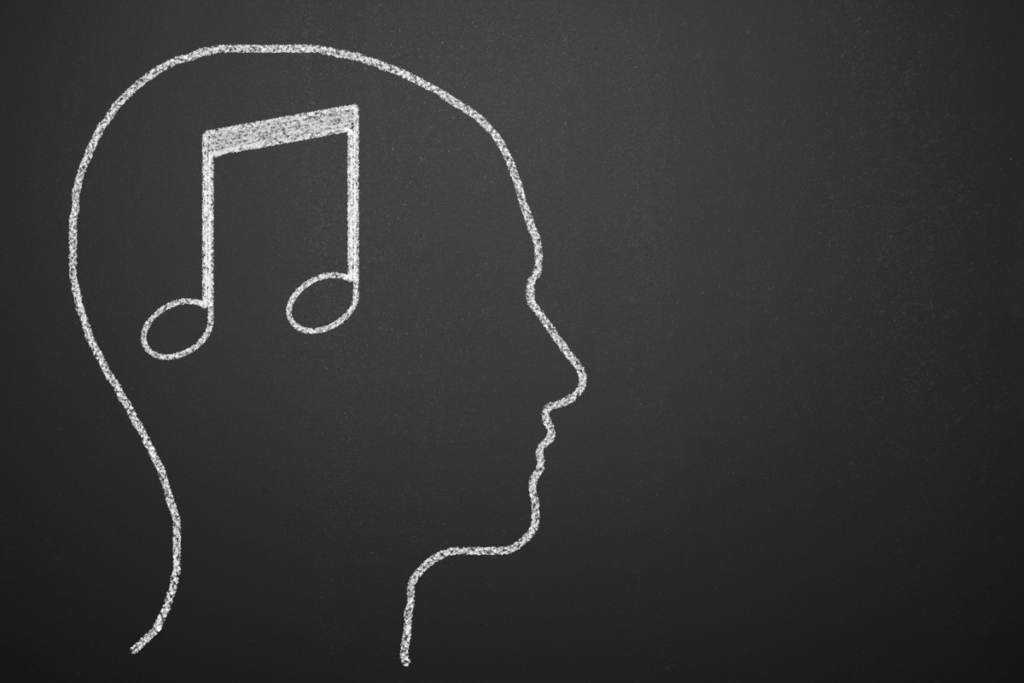Say Goodbye to Chronic Pain By Listening to Your Favorite Songs


Written and verified by the psychologist María Vélez
Since the 1970s, numerous studies have investigated how music can help in different therapeutic processes. They’ve ranged from intuitively related objectives, such as facilitating sleep, improving communication in autism, reducing chronic pain, and facilitating memory in Alzheimer’s, as well as promoting physical rehabilitation after brain damage.
Many of these studies have discovered that the characteristics of music are linked to changes in some psychophysiological factors. For example, the rhythm or volume of music with heart rate or breathing. However, the most interesting results have been found when analyzing people’s experiences when listening to music.
When you listen to music, the brain regions related to your emotions are activated, which regulates your mood. In addition, if what you’re listening to is a musical style or a song that you like, you’ll feel an immediate sensation of pleasure.

Music and pain
One of the therapeutic applications that’s been of most interest to the scientific and clinical community has been the use of music to reduce pain and its negative effects. The results have been surprising. In fact, researchers have found that music is capable of reducing anxiety related to pain, its intensity, and even the dose of opioid drugs that patients need to control it.
To better understand the link, we’ll briefly explain what pain consists of and how it’s expressed in the nervous system.
The definition of pain
Pain is an experience that has three components: sensory, affective, and cognitive.
- The sensory component refers to the information that reaches the nervous system through the nociceptors. This ‘message’ informs about the presence and nature of the painful stimulus (wound, burn, pressure), its duration, and intensity.
- The emotional and affective component of pain is responsible for that information being interpreted as unpleasant and painful. Pain, through this dimension, is capable of generating a feeling of fear or anguish.
- The cognitive component is in charge of giving value and meaning to what’s happening and of starting the corresponding behaviors. It refers to the set of mental processes that surround the experience. For example, whether or not we attend to the pain or make use of the knowledge we have about pain and our previous experiences. Also, how we describe the sensation or decide what actions to take to alleviate the pain.
These affective and cognitive components acquire special importance in chronic pain. That’s because it involves constant physical and, more particularly, mental discomfort. As a matter of fact, this extended suffering over time has been shown to be capable of altering brain function. It can also lead to other conditions such as anxiety disorders or depression.
Chronic pain and listening to your favorite songs
Unfortunately, the mechanisms by which music relieves chronic pain are still unclear. However, there are some clues, thanks to a multitude of investigations. It appears that the processing of music and the affective and cognitive components of pain share a specific brain structure: the anterior cingulate cortex.
This structure is closely connected to the amygdala and together, they’re highly involved in attentional processing. In fact, they can suppress responses from the autonomic nervous system (such as pain). One of the models supporting music interventions for pain is based on this fact.
The cognitive vitality model facilitates the analgesic effects of music because the experience is meaningful, rewarding, and absorbing. Therefore, if we like the music, our reward systems will be stimulated, acting as incentives us to pay attention and stay connected with it. If this happens, the physical sensations will no longer stand out from other stimuli and our attention will be directed to the music and the pleasure it provides.
Furthermore, experts have highlighted the crucial role of cognitive agency. This term refers to the sense of control an individual has over their environment. Thus, if they choose the music to play, the beneficial effects of music on their chronic pain will be multiplied.
Scientific evidence
Several articles have recently been published with some really interesting findings concerning music and chronic pain. In 2020, a group led by the University of Japan conducted research on how listening to our favorite style of music influences our pain thresholds and perception of pain.
The study subjected participants to a functional magnetic resonance imaging session. The participants listened to music and received moderately painful stimuli on the skin of their arms. The results showed that their pain sensitivity was lower when listening to their favorite music. More specifically, their pain threshold almost doubled when their favorite CD was playing.
The authors of this paper concluded that the activation of the anterior cingulate gyrus was reduced in these participants, compared to those who listened to the music chosen by the researchers. Enjoying the music they chose themselves distracted them from their pain.
However, what if this effect is due to the familiarity of songs? This was raised by Claire Howlin and her colleagues from the University of London (UK). They studied what happened to 286 people with chronic pain when they were made to believe that they chose the music even though, in reality, it was being controlled by the researchers.
Their findings indicated that those who thought they had control over what they heard were more engaged. Consequently, they felt greater pain relief which remained significant for two weeks.

How can it help?
Taking into account how pain is processed and how music influences it, it’s clear that listening to your favorite songs can help you relieve chronic pain. The most important thing is that it must be music that you really like in order to take your mind off internal sensations.
This is certainly something to celebrate. It means that to relieve pain it won’t be necessary to listen to a specific melody or a style that you may not like, but the benefits can come from your own style of preferred music, be it metal, classical, pop or techno.
The key lies in paying attention to it. So, if you suffer from chronic pain, try some music therapy at home. Spend a few minutes a day listening to the kinds of songs that you love. Above all, pay attention to what you feel you need at all times. If your senses ask you for a ballad instead of classical music, put it on. After all, at the end of the day, it’s an intervention with absolutely no recognized side effects.
All cited sources were thoroughly reviewed by our team to ensure their quality, reliability, currency, and validity. The bibliography of this article was considered reliable and of academic or scientific accuracy.
- Howlin, C., Stapleton, A., Rooney, B. (2022) Relieve pain: reduced agency and active engagement predictive of pain intensity after listening to music. Plos One, 17(8): e0271329. https://doi.org/10.1371/journal.pone.0271329
- Lee, J. H. (2016). The Effects of Music on Pain: A Meta-Analysis. Journal of Music Therapy, 53(4), 430–477. https://doir.org/10.1093/jmt/thw012
- Antioch, I., Furuta, T., Uchikawa, R., Okumura, M., Otogoto, J., Kondo, E., Sogawa, N., Ciobica, A., Tomida, M. (2020) Favorite Music Mediates Pain-related Responses in the Anterior Cingulate Cortex and Skin Pain Thresholds. Journal of Pain Research, 13, 2729-2737. https://doi.org/10.2147/JPR.S276274
This text is provided for informational purposes only and does not replace consultation with a professional. If in doubt, consult your specialist.








